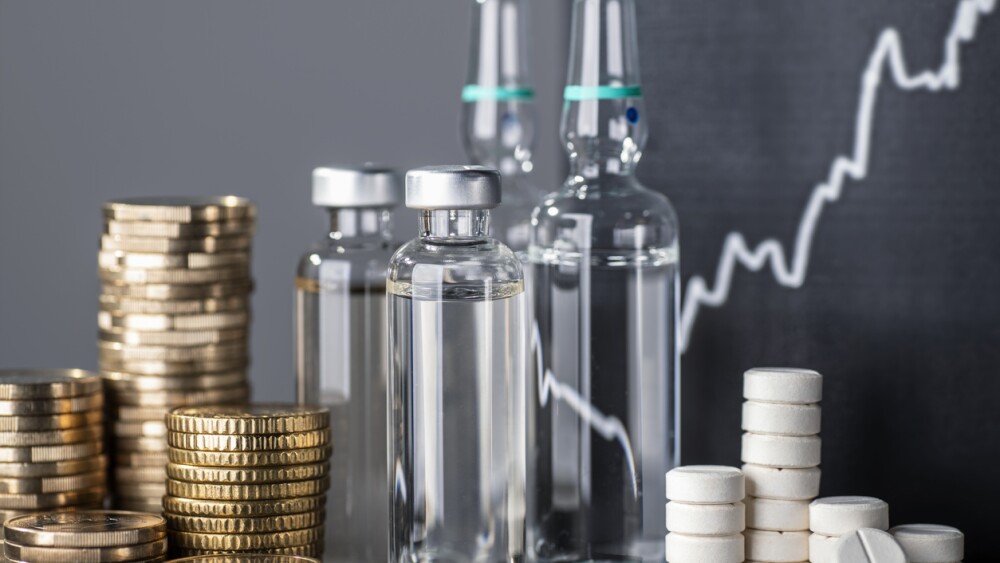VALENCIA, Calif., April 19 /PRNewswire-FirstCall/ -- MannKind Corporation today announced results from a Phase 2 clinical study of inhaled insulin in people with Type 1 diabetes. The study was designed to evaluate whether inhaled insulin delivered using the MannKind Technosphere(R) Insulin System showed similar safety and efficacy at controlling blood sugar based on dosing regimens commonly used in the every day management of diabetes, when compared to patients treated with insulin aspart (NovoLog(R)), which is an injected rapid-acting insulin analog. These findings are the first disclosure of these results and will be included in the company's webcast today, details of which are outlined at the end of this press release.
"This is the first study that demonstrated that patients with Type 1 diabetes using Technosphere Insulin can achieve comparable levels of control in HbA1c as patients treated with an injected rapid-acting insulin analogue," said Dr. Peter Richardson, Chief Scientific Officer of MannKind. "HbA1c is an average measure of blood sugar over a period of between three and four months."
"A major challenge in managing diabetes is controlling mealtime blood sugar spikes. Technosphere Insulin has a more rapid onset of action and a shorter duration of action than the injected rapid-acting insulin analogue. In this study, the peak of the mean blood glucose values following a standardized meal test were lower for patients on Technosphere Insulin than those receiving injections of rapid-acting insulin analogue. Our study also found that patients using Technosphere Insulin did not gain weight during the study in contrast to patients using the injected rapid-acting insulin analogue. Furthermore, after twelve weeks of treatment, pulmonary function did not differ between the two patient groups," he added.
The study included 110 patients with Type 1 diabetes on basal/prandial therapy, who where randomized to either Technosphere Insulin (n=54) or the injected rapid-acting insulin analogue, Novolog(R), (n=56) at meal time together with insulin glargine, Lantus(R), as basal insulin.
After a transfer period, patients were followed for 12 weeks during which individual adjustments of therapy were made, and standardized meal tests were conducted at study initiation and after 8 and 12 weeks of therapy.
HbA1c levels and post-prandial glucose fluctuations were assessed at the initial visit, at the start of randomized treatment and at study completion. Comparisons were made between the patient group receiving Technosphere Insulin and the patient group receiving injected rapid-acting insulin analogue. Pulmonary safety was assessed by serial measurements of lung function, including forced expiratory volume (FEV1) and carbon monoxide lung diffusing capacity (DLCO).
Study Results * Both patient groups achieved a statistically significant improvement in HbA1c (0.83% in the Technosphere Insulin patient group and 0.99% in the injected rapid-acting insulin analogue patient group). * The mean glucose rise after a standard meal, Cmax, in the Technosphere Insulin patient group was only 18.7 mg/dl versus 46.8 mg/dl in the injected rapid-acting insulin analogue patient group (p=0.09), demonstrating a trend toward a more normal glucose level after a meal. However, the level of post-prandial glucose fluctuations were considerably less in the Technosphere Insulin patient group than in the rapid-acting insulin analogue patient group. Post-prandial Glucose Fluctuations (AUC) Technosphere Insulin Injected rapid-acting insulin analogue Above baseline 96.7 400.6 Below baseline -136.2 -182.2 Total fluctuation 232.9 582.8 * After 12 weeks of treatment, there was a statistically significant (p=0.0018) weight change between the patient groups of 1.3 kg. The Technosphere Insulin patient group experienced a weight loss of 0.41kg and the injected rapid-acting insulin analogue patient group saw an increase in weight of 0.89 kg. * After 12 weeks of treatment, pulmonary function did not differ between the two patient groups as measured by FEV1, the volume of air that can be forced out in one second after taking a deep breath, and DLCO, a measure of gas exchange capacity of the lung, from baseline between Technosphere Insulin and injected rapid-acting insulin analogue patient groups. The results were consistent with the Company's previous studies on Technosphere Insulin that demonstrated improvement in glycemic control in patients with diabetes, post-prandial glucose reductions with no deterioration in pulmonary lung function and no weight gain associated with Technosphere Insulin at any of the dosage levels tested. About Diabetes
According to the United States Centers for Disease Control, or CDC, as of 2005, approximately 20.8 million people in the United States, or 7% of the population, suffered from diabetes. The CDC estimated that 14.6 million cases of diabetes were diagnosed and under treatment and that 1.5 million new cases would be diagnosed in 2005. The CDC reported that diabetes was the sixth leading cause of death listed on death certificates in 2002, but that diabetes was likely to be underreported as a cause of death. Overall, the CDC found that the risk of death among people with diabetes is about twice that of people without diabetes of similar age. The American Diabetes Association estimated that, in 2002, the total cost of diabetes in the United States was $132 billion. This amount includes $12 billion of direct costs for drug treatment, of which approximately $7 billion were for insulin and delivery supplies and approximately $5 billion were for non-insulin oral medications.
Diabetes is a major disease characterized by the body's inability to properly regulate levels of blood glucose, or blood sugar. The cells of the body use glucose as fuel, which is consumed 24 hours a day. Between meals, when glucose is not being supplied from food, the liver releases glucose into the blood to sustain adequate levels. Insulin is a hormone produced by the pancreas that regulates the body's blood glucose levels. Patients with diabetes develop abnormally high levels of glucose, a state known as hyperglycemia, either because they produce insufficient levels of insulin or because they fail to respond adequately to insulin produced by the body. Over time, poorly controlled levels of blood glucose can lead to major complications, including high blood pressure, blindness, amputations, kidney failure, heart attack, stroke and death.
Today's Webcast
Management will webcast its meeting with investors and analysts this morning from 8:30am ET to 12:00pm ET via the Investor Relations section of the Company's website at www.mannkindcorp.com. An audio replay of the presentations will be available for 14 days. Alfred E. Mann, Chairman of the Board and Chief Executive Officer, Hakan S. Edstrom, President and Chief Operating Officer, and members of the executive leadership team will provide an overview of the Company, clinical developments of the Technosphere Insulin System, and the progress of MannKind's therapies for solid tumor cancers. A special presentation on the changes in diabetes care will be given by Dr. Irl Hirsch, Professor of Medicine and the Medical Director of the Diabetes Care Center, University of Washington Medical Center and the 2004 recipient of the Outstanding Physician Clinician in Diabetes Care Award by the American Diabetes Association.
About MannKind Corporation
MannKind Corporation focuses on the discovery, development and commercialization of therapeutic products for diseases such as diabetes and cancer. Its lead investigational product candidate, the Technosphere(R) Insulin System, is currently in Phase 3 clinical trials in the U.S. and Europe to study its safety and efficacy in the treatment of diabetes. For more information on MannKind Corporation and its technology, visit www.mannkindcorp.com.
Forward-Looking Statements
This press release contains forward-looking statements, including statements related to MannKind's clinical trials and product candidates that involve risks and uncertainties. Words such as "believes", "anticipates", "plans", "expects", "intend", "will", "goal", "potential" and similar expressions are intended to identify forward-looking statements. These forward-looking statements are based upon the Company's current expectations. Actual results and the timing of events could differ materially from those anticipated in such forward-looking statements as a result of these risks and uncertainties, which include, without limitation, risks related to the progress, timing and results of clinical trials, the risk that future safety and efficacy studies may not confirm our past clinical results, risks related to intellectual property matters, difficulties or delays in seeking or obtaining regulatory approval, risks related to manufacturing the Company's lead product candidate, risks related to competition from other pharmaceutical or biotechnology companies, risks related to the Company's ability to enter into any collaborations or strategic partnerships or obtain additional financing to support the Company's operations, risks related to the Company's ability to meet milestones and other risks detailed in MannKind's filings with the SEC, including the Annual Report on Form 10-K for the year ended December 31, 2005 and periodic reports on Form 10-Q and Form 8-K. You are cautioned not to place undue reliance on these forward-looking statements, which speak only as of the date of this press release. All forward-looking statements are qualified in their entirety by this cautionary statement, and MannKind undertakes no obligation to revise or update any forward-looking statements to reflect events or circumstances after the date of this news release.
NovoLog(R) is a registered trademark of Novo Nordisk A/S. Lantus(R) is marketed by sanofi-aventis.
MannKind CorporationCONTACT: Peter Richardson, Chief Scientific Officer of MannKindCorporation, +1-201-983-5064, prichardson@mannkindcorp.com; or Investors,Robert Stanislaro of Financial Dynamics, +1-212-850-5657,rstanislaro@fd-us.com, for MannKind Corporation
Web site: http://www.mannkindcorp.com//




